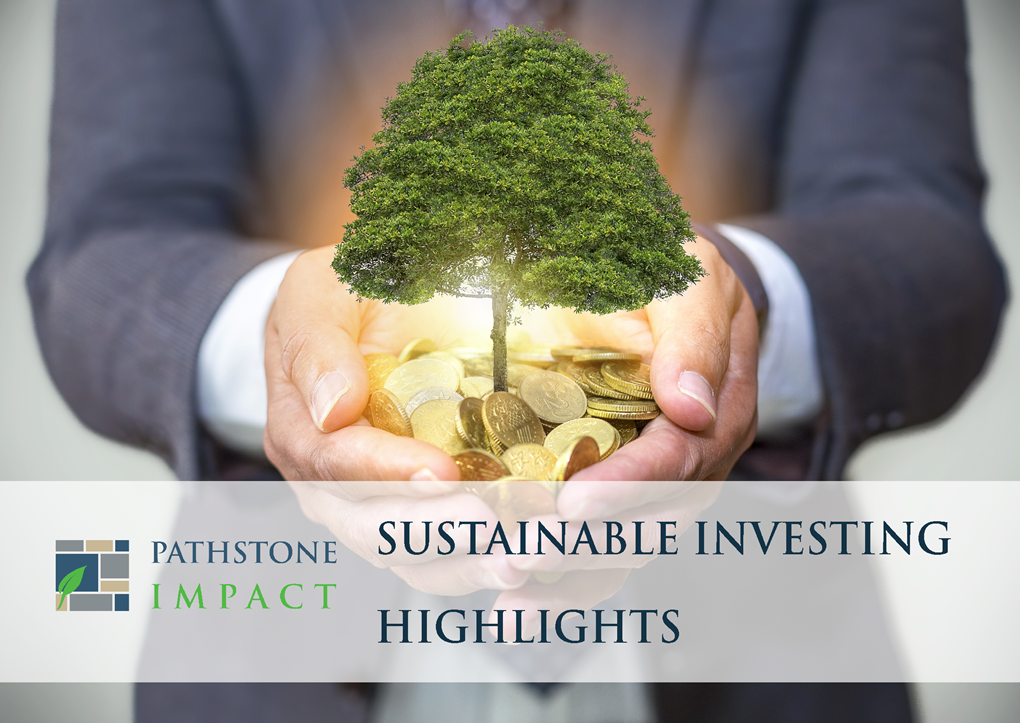Experts agree that human-caused climate change is occurring, according to a major study.
A scathing study on the dangers of human-caused climate change was issued early this month by hundreds of prominent scientists. The momentous study, dubbed “code red for mankind,” was issued in Geneva by the United Nations’ Intergovernmental Panel on Climate Change (IPCC). According to the report the climate catastrophe has already begun and is a direct result of human activity. The world has warmed by approximately 2 degrees Fahrenheit since the Industrial Revolution started, a shift that has been described as “unprecedented” and “rapid” in the history of the Common Era. What’s more, recent heatwaves, droughts, and storms that have put the world’s population at risk are not only characteristic of global warming but are also directly caused by it.
Three takeaways from the recent IPCC report are;
- Every region is facing increasing changes: Global warming has an indirect impact on several climate change factors, but what people experience is often quite different from the average. For example, land-based warming is higher than the world average, whereas Arctic warming is more than twice as high as the world average. A new study forecasts that global climate change will accelerate in the next decades, regardless of location. As global warming increases by 1.5 degrees Celsius, there will be more heat waves and longer warm seasons, as well as shorter winters. According to the research, temperature extremes would become more common at 2°C of global warming.
- The earth is warming faster than expected: The report provides new estimates of the possibility of surpassing the 1.5°C global warming level in the next few decades, finding that keeping warming to 1.5°C or even 2°C will be unachievable unless greenhouse gas emissions are cut quickly, fast, and massively. According to the study, human-caused greenhouse gas emissions were responsible for around 1.1°C of warming between 1850 and 1900, and global temperatures are expected to climb by 1.5°C or more over the next 20 years on average. In addition to utilizing improved observational datasets to estimate historical warming, this assessment takes into consideration recent scientific advances in our understanding of the climate system’s response to human-caused greenhouse gas emissions.
- Climate change caused by human activity in the past and future: ‘The Earth’s climate has been changing for decades,’ IPCC Working Group I Co-Chair Valérie Masson-Delmotte said. In addition, the report includes new research on climate change-related weather and climatic phenomena, such as extreme heat waves and heavy rain. Humans will continue to influence climate change, the research shows. Aside from carbon dioxide (CO2), other greenhouse gases and air pollution have a significant influence on the climate. Achieving net-zero CO2 emissions is essential to stabilizing the climate. The health and climatic advantages of limiting other greenhouse gases and air pollutants, such as methane, are indisputable.
Government leaders around the world have reacted to the recent IPCC report.
“Today’s report makes for sobering reading, and it is clear that the next decade is going to be pivotal to securing the future of our planet. We know what must be done to limit global warming – consign coal to history and shift to clean energy sources, protect nature and provide climate finance for countries on the frontline” says Boris Johnson UK Prime Minister
“We can’t wait to tackle the climate crisis.” Tweeted by Joe Biden, President of the United States
“The latest IPCC report identifies that the opportunity to limit global temperature rise to 1.5C is very slim, but still scientifically possible. The exigency of this situation must not lead us to despair, rather it should propel us into action. […] Leaders must show they understand the seriousness of the science and turn in stronger national commitments ahead of the COP26 climate talks this November. The big question leaders must reckon with in Glasgow is whether these plans add up to what is needed — and if not, how they will close the remaining gap.”- Mary Robinson, Chair of The Elders, Former President of Ireland
“The current news headlines about deadly flooding, forest fires, and droughts happening around the world are like scenes from a dystopian science fiction novel, yet these are manifestations of the global warming that our climate pollution has already baked into the system. The dangerous and costly impacts we are experiencing now will seem mild compared to what we will face if we fail to keep warming to 1.5C by the end of this century. […] This underscores the urgent need for rich nations to deliver far more financial resources to developing countries that are the most vulnerable to climate impacts and the least responsible for emissions.” Says Helen Mountford, Vice President, Climate and Economics, World Resources Institute.
Governance in ESG: Toyota and Deutsche Bank backtrack on ESG commitments as Al Gore warns of Greenwashing
G-factors are often ignored within the environmental, social, and governance (ESG) equation. Examples of “G” governance concerns include a lack of transparency and accountability; ethics violations, including corruption and bribery; a lack of independent directors in key roles; and egregious executive compensation. Organizations whether big or small, public or private wrestle with the “G”. Poor corporate governance procedures have been at the heart of some of the most notorious business crises. Understanding governance risks and opportunities in decision-making is therefore crucial.
Recently, Deutsche Bank has been facing a lawsuit for enabling and turning a blind eye to fraudulent investments that led to massive losses. According to court documents, the liquidators of two now-bankrupt Cayman Islands investment firms sued Deutsche Bank in New York and Florida, saying it “enabled enormous theft” that resulted in hundreds of millions of dollars in damages. The complaints say that Deutsche Bank kept accounts for businesses participating in the scam open despite numerous red flags and SEC fines against them and that it failed to implement its own anti-money-laundering standards.
South Bay Holdings and Biscayne Capital International labeled themselves as real estate developers with the intent to raise capital by issuing notes backed by Deutsche Bank. The two businesses created special purpose vehicles to provide notes to investors backed by South Bay’s real estate assets, but the properties were saddled with more debt than equity, and the notes were unsecured, according to the Florida complaint. Money collected through these notes was used to offset losses in real estate projects, pay property mortgages, finance unrelated and unreported activities, and enrich the firms’ owners, their families, and associates. When funds were tight, the principals would issue new notes to generate extra funds.
These lawsuits are coming at the time when Deutsche Bank AG’s asset management, which is part of the DWS group of Deutsche Bank, struggles to effectively communicate, define and implement its ESG strategies. According to an exclusive report by the Wall Street Journal, Deutsche Bank AG’s asset management “tells investors that environmental, social and governance concerns are at the heart of everything it does and that its ESG standards are above the industry average. But behind closed doors, it has struggled to define and implement an ESG strategy, at times painting a rosier-than-reality picture to investors.”
Similarly, Toyota is another company whose corporate ESG image was recently tarnished after the company lobbied against legislation in the U.S Congress that would help support the adoption of electric cars. According to the New York Times, a high-ranking executive from Toyota met with congressional leaders behind closed doors to press for “the adoption of hybrid and hydrogen-powered vehicles, so it can have more time to catch up with its EV competitors, some of them well ahead in the race to electric vehicle adoption.” In the past, Toyota has pushed back against regulations that would push for more environmentally friendly cars. For instance, Toyota sued Mexico over fuel efficiencies and argued against carbon taxes in Japan.
Recent Bangladesh Fire exposes rampant child labor in factories, tragedies, and crimes the new German Supply Chain Act is designed to help prevent
A fire that engulfed a factory has shone a light on years-long controversies surrounding sweatshops and food factories in Bangladesh. According to the Associated Press, 55 people lost their lives, and among them were 11 children. The inferno began at a five-story Hashem Foods factory in Rupganj, just outside Dhaka. Historically, Bangladesh has seen many industrial disasters, including factories catching fire with employees trapped inside. After fires and other tragedies killed hundreds of people in Bangladesh, large multinational brands were under intense pressure to improve manufacturing conditions due to a combination of corruption and inadequate enforcement.
A recent report by Child Labour: Action-Research-Innovation in South and South-Eastern Asia (CLARISSA) a UK Foreign, Commonwealth, and Development Office (FCDO) funded initiatives found that “Children as young as seven years are working with hazardous chemicals, heavy machinery or carrying heavy loads, endangering their health and lives in Bangladesh’s lucrative leather industry.”
Meanwhile, the German Federal Parliament has approved a German Supply Chain Act (GSCA), a bill designed to protect human rights and the promotion of environmentally sound industrial methods. As a result, German companies must identify and analyze human rights and environmental risks, and implement a risk management strategy that is both appropriate and effective. Included in this Act are prohibitions of child labor and forced labor, slavery and servitude; increased attention to occupational health and safety; and freedom of association. Companies must take appropriate steps to prevent or minimize human rights and environmental breaches in these regions.
About the SDGs, Targets, and Indicators
The SDGs
The 2030 Agenda for Sustainable Development, adopted by all United Nations Member States in 2015, provides a shared blueprint for peace and prosperity for people and the planet, now and into the future. At its heart are the 17 Sustainable Development Goals (“SDGs”), which are an urgent call for action by all countries – developed and developing – in a global partnership. They recognize that ending poverty and other deprivations must go together with strategies that improve health and education, reduce inequality, and spur economic growth – all while tackling climate change and working to preserve our oceans and forests.
Targets
The SDGs targets are set to be achieved by 2030. There are approximately 169 targets covering a broad range of sustainable development issues.
Indicators
The SDGs indicators are used to measure progress made by the United Nations member states towards the achievement of SDGs targets. There are approximately 232 indicators set by the United Nations to measure SDGs progress.
Please see the PDF version of this article for citations and important disclosures.
Sources:
https://www.natlawreview.com/article/sec-approves-nasdaq-board-diversity-proposals
https://fortune.com/2021/08/06/sec-approves-nasdaq-diversity-requirements-boards/
https://www.wsj.com/articles/nasdaqs-board-diversity-proposal-faces-sec-decision-11628242202
https://www.bbc.com/news/business-58123730
https://apnews.com/article/business-race-and-ethnicity-ef14c40ab196e29b3a9f3022ee70d0f7
https://www.jdsupra.com/legalnews/esg-alphabet-soup-august-2021-issue-no-2858762/
https://www.nytimes.com/2021/07/25/climate/toyota-electric-hydrogen.html
https://finance.yahoo.com/news/toyota-lobbying-against-ev-adoption-151034380.html
https://www.reuters.com/article/mexico-auto-idINL1E8LQ8AU20121026
https://www.bbc.com/news/science-environment-58130705
https://www.cnn.com/2021/08/09/world/global-climate-change-report-un-ipcc/index.html
https://www.theatlantic.com/science/archive/2021/08/latest-ipcc-report-catastrophe/619698/
https://foreignpolicy.com/2021/08/09/ipcc-report-takeaways-climate-change/
https://yaleclimateconnections.org/2021/08/key-takeaways-from-the-new-ipcc-report/
https://www.independent.co.uk/climate-change/news/ipcc-report-2021-summary-climate-b1899189.html
https://www.globalcitizen.org/en/content/un-ipcc-climate-report-code-red-experts-quotes/
https://apnews.com/article/business-fires-bangladesh-19a033b8302726a5ff018edbbd5b5a2b
https://apnews.com/article/business-fires-arrests-bangladesh-1b35e1629651145aff75ce9a449ec6d9
https://www.eurasiareview.com/26072021-bangladesh-child-labor-rampant-in-leather-industry/
https://www.reuters.com/article/us-germany-companies-supply-chains-idUSKCN2DN1AV
https://unstats.un.org/sdgs/indicators/indicators-list







